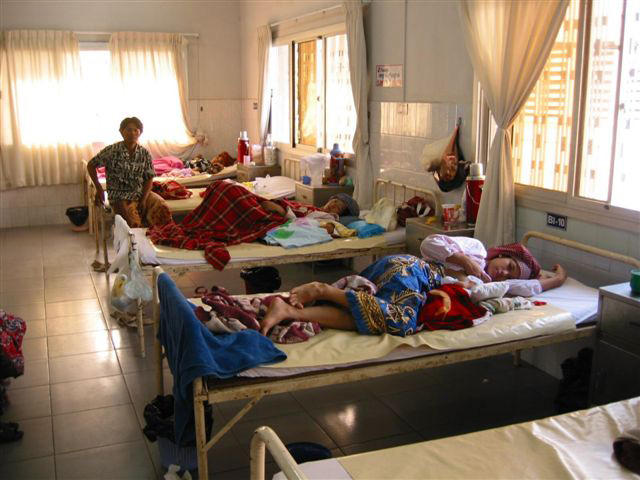COULD A WIDELY AVAILABLE DRUG HELP SAVE WOMEN'S LIVES?
Around the world one woman dies every five minutes from excessive bleeding after giving birth, a medical complication known as postpartum haemorrhage. The majority of these women live in low- and middle-income countries where access to life-saving emergency healthcare is often limited.
“Although reducing death during childbirth has been a millennium development goal for the past 15 years, the quantity and quality of the research needed to support this lofty humanitarian aspiration is seriously inadequate and is not commensurate with the high level of political ambition,” commented Ian Roberts, co-director of the Clinical Trials Unit at the London School of Hygiene & Tropical Medicine.
The WOMAN trial is aiming to combat this by testing whether tranexamic acid, a blood clot stabiliser discovered in Japan in the 1950s, could become an essential tool for fighting this life-threatening condition. It is an ongoing international collaboration of researchers, clinicians and healthcare professionals in 20 countries coordinated by the Clinical Trials Unit at the London School of Hygiene & Tropical Medicine.
Haleema Shakur, co-director of the Clinical Trials Unit, describes how the trial came into being: “I remember clearly when the idea for the WOMAN trial was born. Back in 2008 Ian Roberts and I were visiting emergency care departments in Nigeria for the CRASH-2 trial. We had seen a lot of young people, mostly men, brought in bleeding to death primarily after car crashes.
“Many of the doctors expressed frustration and helplessness trying to save the lives of these victims. They also felt that they were failing their young women as many were being brought into the emergency departments bleeding to death, having given birth at home.
“More needed to be done. The doctors could not affect many of the social reasons which put women into this dire situation, but what could be done was to find better ways to stop them dying once they reached hospital.”
The CRASH-2 trial, completed in 2010, showed that tranexamic acid is effective at reducing a person’s risk of dying from traumatic bleeding. It is easy to use, cheap, and does not require refrigeration, making it an attractive option for budget-constrained hospitals.
In addition to assessing whether tranexamic acid reduces a woman’s risk of dying from postpartum haemorrhage, the WOMAN trial researchers are also looking at whether it can lower her risk for hysterectomy (removing the womb) – an all too common outcome of postpartum haemorrhage.
“Postpartum haemorrhage deprives tens of thousands of young women of their ability to bear children,” said Ian Roberts. “Anaemia is another important consequence of severe bleeding that limits a mother's well-being and her ability to work and care for children.”
While drugs and procedures to treat postpartum haemorrhage have improved in recent years, women are still dying even when they reach hospital, particularly in high-risk countries such as Nigeria and Pakistan. A simple and effective drug treatment that reduces blood loss after delivery could therefore have important consequences for global maternal health.
“We obviously need effective treatments for postpartum bleeding and the way to find better treatments is by doing high quality clinical trial research,” said Roberts. “Women everywhere have the right to share in the benefits of high quality medical science. This is a universal human right.”
He added: “The WOMAN trial is different and important only because it is doing what should be done. The WOMAN trial will come and go but the principle that high quality clinical trials are needed to find effective treatments for women will outlive it.”








2 Responses